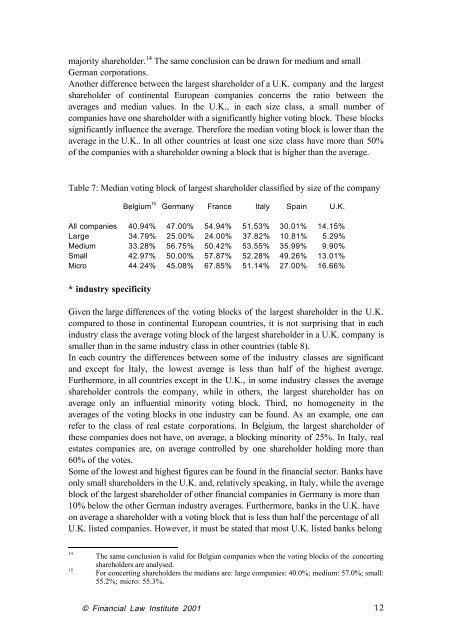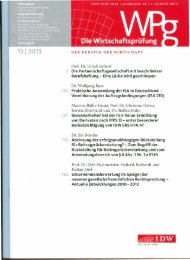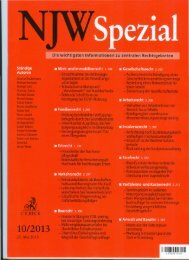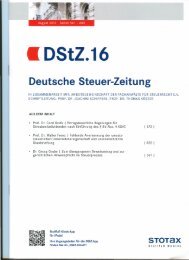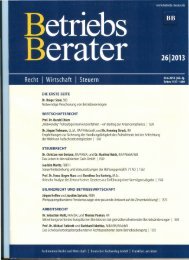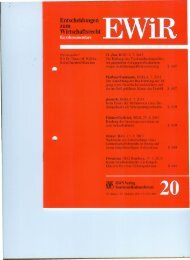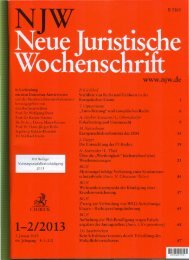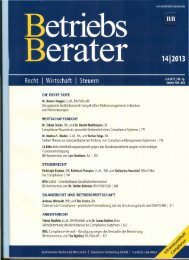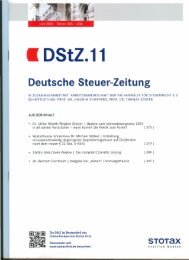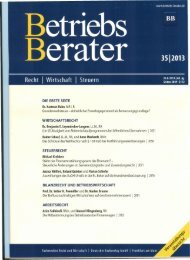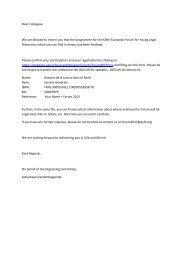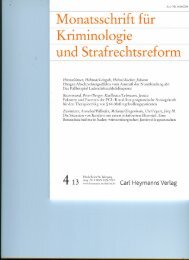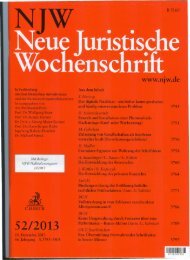Download - Universiteit Gent
Download - Universiteit Gent
Download - Universiteit Gent
Create successful ePaper yourself
Turn your PDF publications into a flip-book with our unique Google optimized e-Paper software.
majority shareholder. 14 The same conclusion can be drawn for medium and small<br />
German corporations.<br />
Another difference between the largest shareholder of a U.K. company and the largest<br />
shareholder of continental European companies concerns the ratio between the<br />
averages and median values. In the U.K., in each size class, a small number of<br />
companies have one shareholder with a significantly higher voting block. These blocks<br />
significantly influence the average. Therefore the median voting block is lower than the<br />
average in the U.K.. In all other countries at least one size class have more than 50%<br />
of the companies with a shareholder owning a block that is higher than the average.<br />
Table 7: Median voting block of largest shareholder classified by size of the company<br />
Belgium 15 Germany France Italy Spain U.K.<br />
All companies 40.94% 47.00% 54.94% 51.53% 30.01% 14.15%<br />
Large 34.79% 25.00% 24.00% 37.82% 10.81% 5.29%<br />
Medium 33.28% 56.75% 50.42% 53.55% 35.99% 9.90%<br />
Small 42.97% 50.00% 57.87% 52.28% 49.26% 13.01%<br />
Micro 44.24% 45.08% 67.85% 51.14% 27.00% 16.66%<br />
* industry specificity<br />
Given the large differences of the voting blocks of the largest shareholder in the U.K.<br />
compared to those in continental European countries, it is not surprising that in each<br />
industry class the average voting block of the largest shareholder in a U.K. company is<br />
smaller than in the same industry class in other countries (table 8).<br />
In each country the differences between some of the industry classes are significant<br />
and except for Italy, the lowest average is less than half of the highest average.<br />
Furthermore, in all countries except in the U.K., in some industry classes the average<br />
shareholder controls the company, while in others, the largest shareholder has on<br />
average only an influential minority voting block. Third, no homogeneity in the<br />
averages of the voting blocks in one industry can be found. As an example, one can<br />
refer to the class of real estate corporations. In Belgium, the largest shareholder of<br />
these companies does not have, on average, a blocking minority of 25%. In Italy, real<br />
estates companies are, on average controlled by one shareholder holding more than<br />
60% of the votes.<br />
Some of the lowest and highest figures can be found in the financial sector. Banks have<br />
only small shareholders in the U.K. and, relatively speaking, in Italy, while the average<br />
block of the largest shareholder of other financial companies in Germany is more than<br />
10% below the other German industry averages. Furthermore, banks in the U.K. have<br />
on average a shareholder with a voting block that is less than half the percentage of all<br />
U.K. listed companies. However, it must be stated that most U.K. listed banks belong<br />
14<br />
The same conclusion is valid for Belgian companies when the voting blocks of the concerting<br />
shareholders are analysed.<br />
15<br />
For concerting shareholders the medians are: large companies: 40.0%; medium: 57.0%; small:<br />
55.2%; micro: 55.3%.<br />
© Financial Law Institute 2001 12


